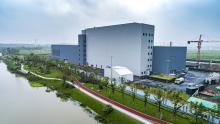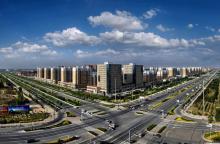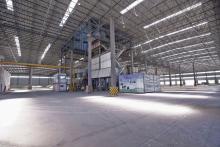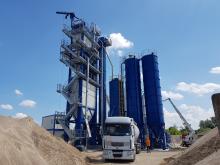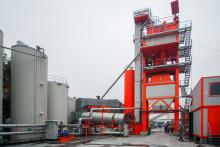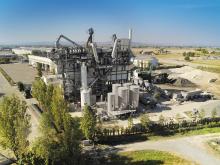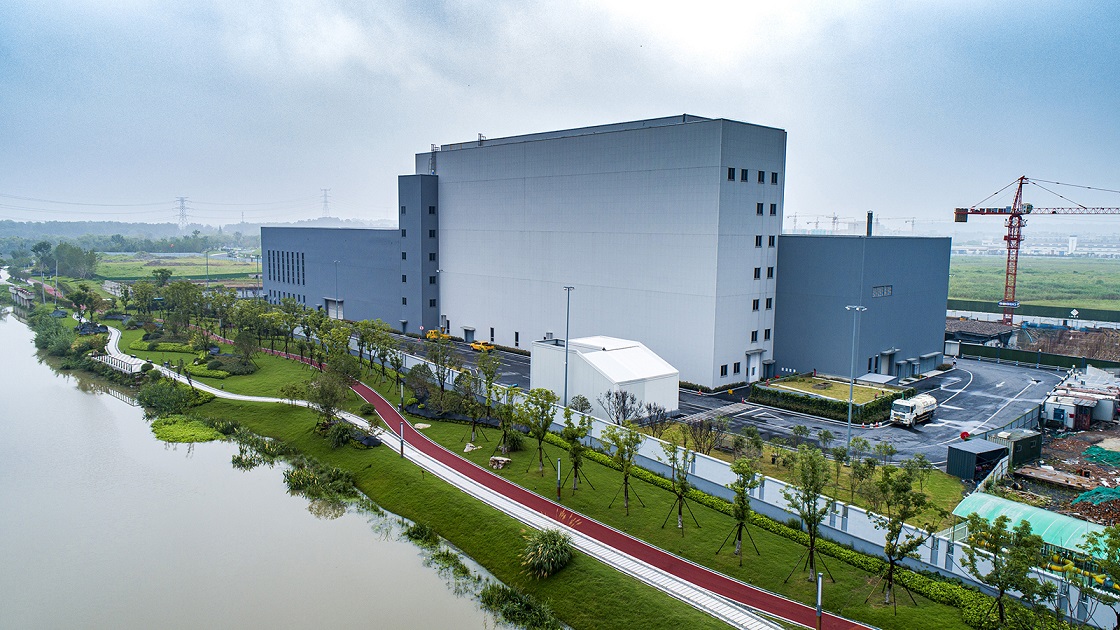
An Ammann mixing plant is helping Hangzhou Road & Bridge Group reduce emissions and change perceptions at its asphalt production centre in China’s Zhejiang province.
Having already purchased an Ammann UniGlobe 320 asphalt mixing plant in 2011, Hangzhou Road & Bridge Group bought an ABA 320 UniBatch asphalt mixing plant from Ammann in 2017 for use at the facility in Hangzhou, the capital of Zhejiang province.
“This asphalt-mixing production centre has raised the standard of the entire industry,” said Jerry Shang, Ammann China region director. “It has changed people’s impressions that making asphalt is messy and dirty – instead of a modern, clean, factory-style approach.”
The ABA UniBatch and the UniGlobe are at the core of the centre, which has a very small footprint and is located in the densely populated subdistrict of Renhe. This makes the minimisation of sound levels of the utmost importance, and both Ammann plants utilise cladding to reduce emissions, sound and dust levels.
Hangzhou Road & Bridge must comply with strict government-mandated environmental standards, and Ammann says its plants help businesses meet such emissions challenges.
“Both Hangzhou Road & Bridge and Ammann agreed on the production and operation concepts focusing on high efficiency, intelligence and environmental protection,” said ConCongcon Wu, general manager at Hangzhou Road & Bridge.
“The company is committed to creating a team that understands technology and innovation, and is dedicated and responsible,” said Wu. “Hangzhou Road & Bridge is one of the first domestic industries to deploy and implement environmental, smart and energy-saving industries and it will set industry benchmarks and lead industry development.”
Hangzhou Road & Bridge has also developed “green” haul trucks that lessen the environmental impact while optimising service and raising industry awareness.
In addition, the centre conducts research that provides technical support for goods and construction equipment. A logistical system that tracks production and transportation was also developed. Consistent output levels have been maintained while all this has been accomplished.
“The current annual output of asphalt in the Renhe production centre is 600,000 tonnes,” Wu said. Capacity can be ramped up as needed. “During the G20 summit in Hangzhou, the Ammann asphalt mixing plant generated 110,000 tonnes of asphalt mixes continuously in two months,” said Huasheng Fang, production manager of the centre.
“The Ammann Asphalt-Mixing Plant has the characteristics of stable performance, low failure rate and accurate measurement,” said Fang. “It can achieve close coordination between testing and actual production.” The plant produces consistent mix, even when utilising high percentages of recycled asphalt (RAP)."

